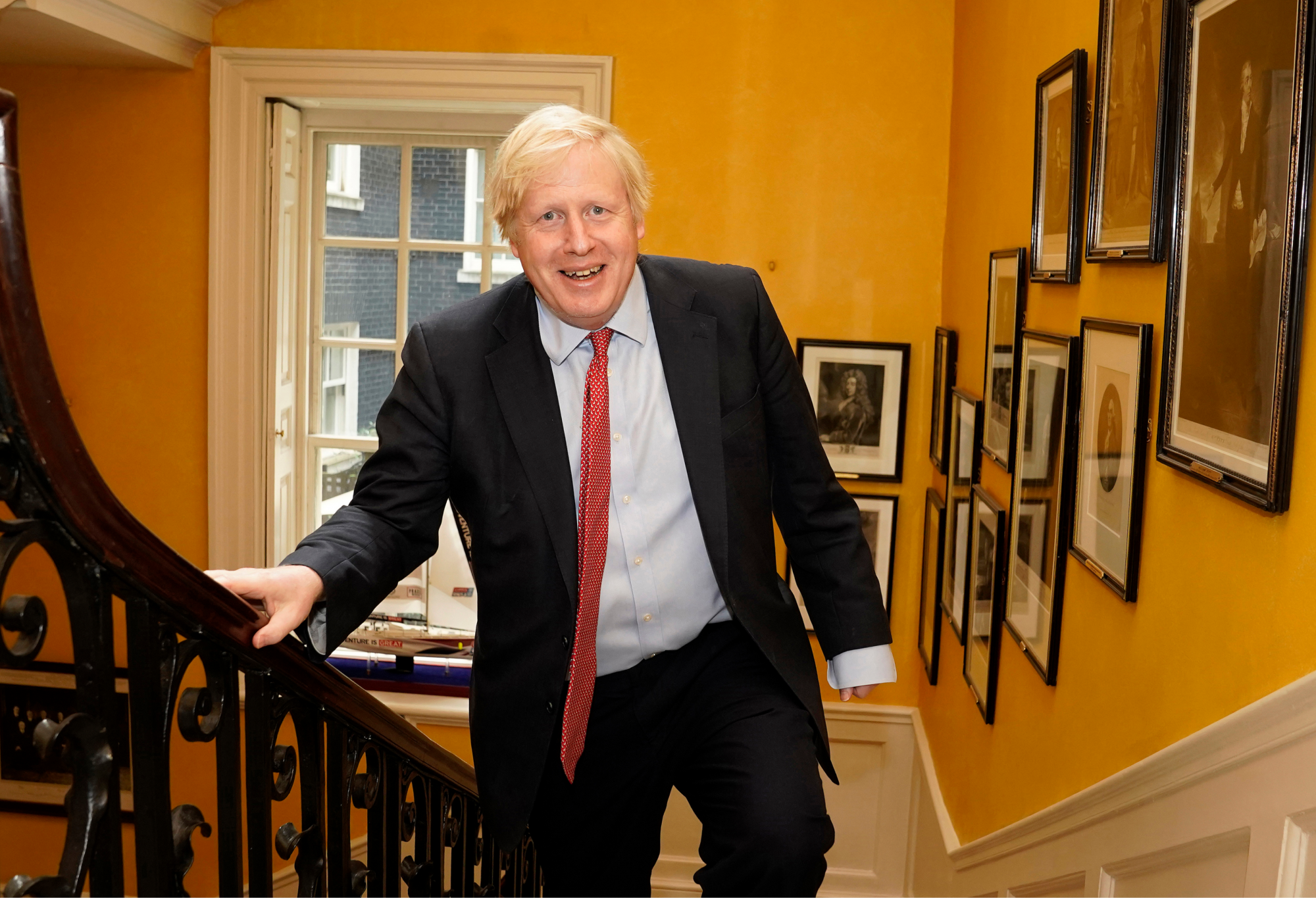Credits: Andrew Parsons / Flickr
In January last year, Boris Johnson was feeling buoyant. The Conservative Party had won its biggest majority since 1987, the Labour Party had been outvoted into near-oblivion and the Brexit debate that had tortured Britain had finally been put to rest. Johnson, then newly elected as prime minister, decided to bring his optimism online. Tweeting a photo of himself with two-thumbs up and a smile, Johnson posted a simple message to his followers: “This is going to be a fantastic year for Britain.”
The tweet, in a typical online fashion, was later ridiculed for its over-optimism. Britain that year had faced an entire year of lockdowns, thousands of deaths from COVID-19 and an economy in recession. When the virus first took hold in Britain, Johnson decided that what Britain needed was a dose of Johnsonian optimism. During a COVID-19 press-conference, he stood at the central podium and claimed that Britain could turn the tide against the virus in 12 weeks. Of course, none of this was true. But in both instances, Johnson revealed a key aspect of his character: his penchant for optimism.
Johnson’s colourful rhetoric and unassailable optimism has long been a defining characteristic. As a celebrity-politician, Johnson has used an overly optimistic approach to politics to stand out from the political competition. Through optimism, Johnson has been able to promise in politics what others would not and rally Britain together in times of national criticism. In 2012, when Mitt Romney — the Republican politician from the United States — questioned London’s readiness to stage the Olympic games, Johnson hit back during a rally at Hyde Park: “I think there’s a guy called Mitt Romney who wants to know whether we’re ready,” Johnson yelled to a cheering crowd. “He wants to know whether we’re ready. Are we ready? Yes we are!”
While Johnson’s optimism may have been refreshing in the past, more than any other time in his political career, it is now coming under its greatest level of scrutiny. During the pandemic, Johnson made numerous optimistic claims about Britain’s fight against the virus, but soon learned that what mattered were not empty promises or speeches of hope, but practical results — especially in matters of life and death. Laura Kuenssberg made this clear to Johnson in December of last year: “Through this pandemic, you seemed to have frequently over-promised and under-delivered, whether it’s turning the tide in 12 weeks, calling a second national lockdown a disaster, and that cancelling Christmas would be inhuman…why do you continue to do this?” Johnson responded with his normal blather. Optimism, he realised, had a time and place. A serious pandemic engulfed by false hope was not one of them.
To understand Johnson’s optimism bias is to realise it does not operate on the intuition of hope. Rather, it is to acknowledge that it is the product of a life of privilege that Johnson has led, and a feeling that things just always work out in the end — no matter how bad they get.
How can we explain Johnson’s attitude? Perhaps we should begin with his meteoric rise into the elite of British society: first as an alumnus of Eton and Oxford; then as editor of the Spectator; then as the liberal-leaning Mayor of London; then as foreign secretary of the United Kingdom; and now, most recently, as prime minister. For Johnson, it can be difficult to assume that life will never work out in the end, for there is always a connection that can be called, strings that can be pulled or a member of an old boys’ network that can be contacted.
Barack Obama, writing in his memoir A Promised Land, made a similar claim about David Cameron, the then prime minister. Obama wrote that Cameron possessed “an easy confidence of someone who’d never been pressed too hard by life.” John Bercow, former Speaker of the House, agreed: “Cameron has been the most enormous, public school self-instilled, self-confidence,” he said. “He thinks people like him are born to rule, that the natural order is that people like hum run things, and that he is in a superior position.”
It is not, however, only Johnson’s privilege that has instilled him with a pre-disposition to optimism. It has also been his personal experiences. Johnson has long understood that no matter how bad his life or controversial his actions, he will largely escape their consequences — and in some cases, even come out better on the other side. Take his distasteful comments against Muslims, homosexuals and Africans; his sacking for lying about an extra-marital affair by Michael Howard; his attempt to unlawfully prorogue Parliament; his leaked tape discussing an assault against a journalist; his decision to tell lies on the front of a referendum bus; or his tactical resignation against Theresa May. In all of these instances, Johnson faced no career-ending punishments. In fact, the opposite was true: Johnson’s career continued on an upward trajectory, where he was finally rewarded with the office of prime minister and an eighty-seat majority.
The Johnsonian mind therefore always has a cause to be optimistic, for it understands the realities of politics — and political consequences — do not apply. Johnson’s optimism bias stems from an issue of liability. In British politics, those who make the decisions are not subject to their consequences, nor are they held accountable for them. Nassim Taleb and Philip Tetlock made such points in their books, Skin in the Game and Superforecasting: politicians (or experts) never face the cost of being wrong. It is this conundrum that allows Johnson to have the privilege of being optimistic, no matter how drastic the political mistake or blunder. It is a natural reaction to life’s woes, for Johnson will never face the same outcomes as others.
Johnson’s optimism bias may have been an adept tool to climb the ladder of politics in the past, but the pandemic has called for actionable results, not Johnsonian wishful thinking. Johnson may be optimistic for Britain’s future in a post-pandemic world, but it should be recognised that it is largely a result of a Johnsonian life free from adverse outcomes.


